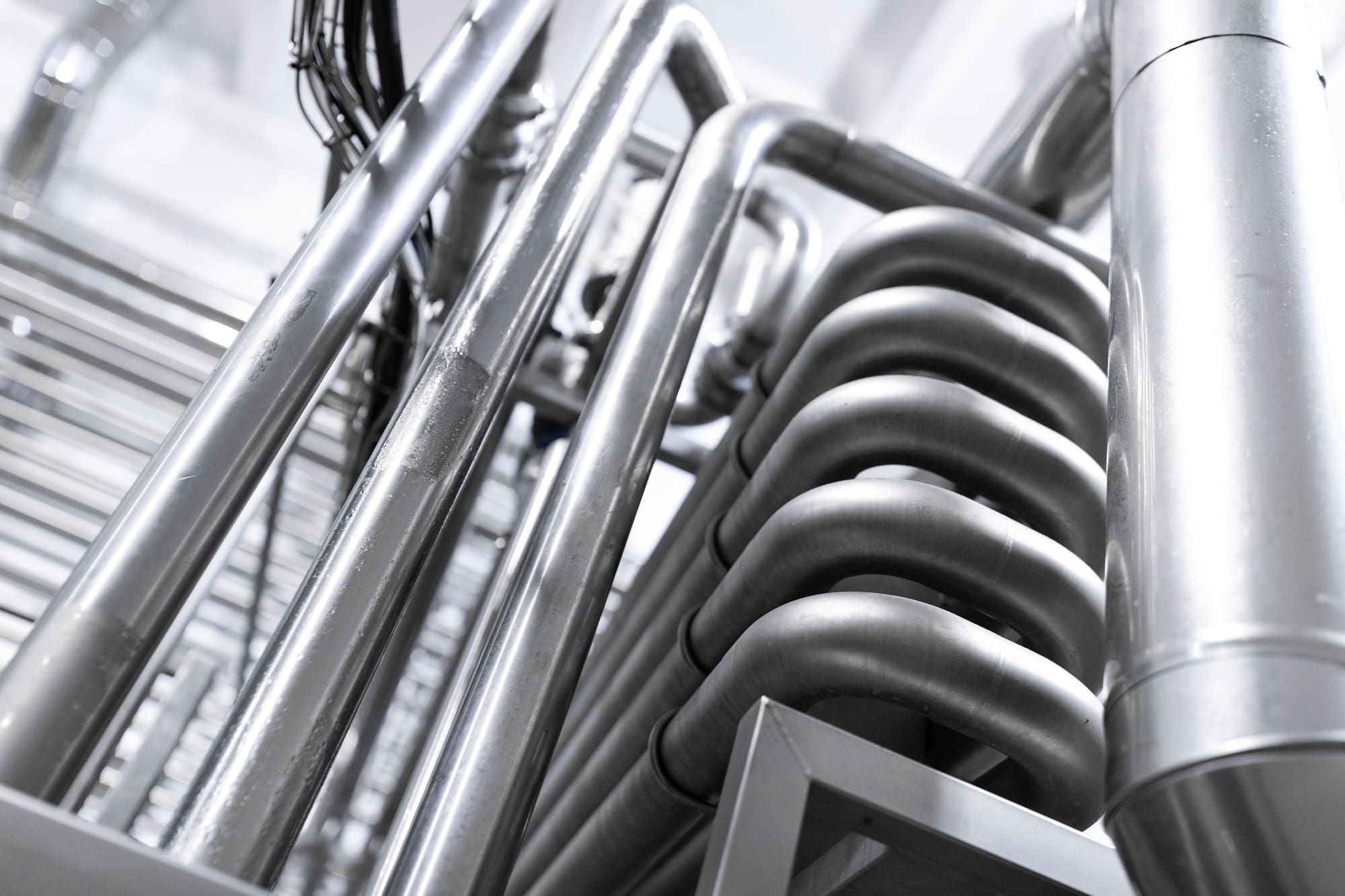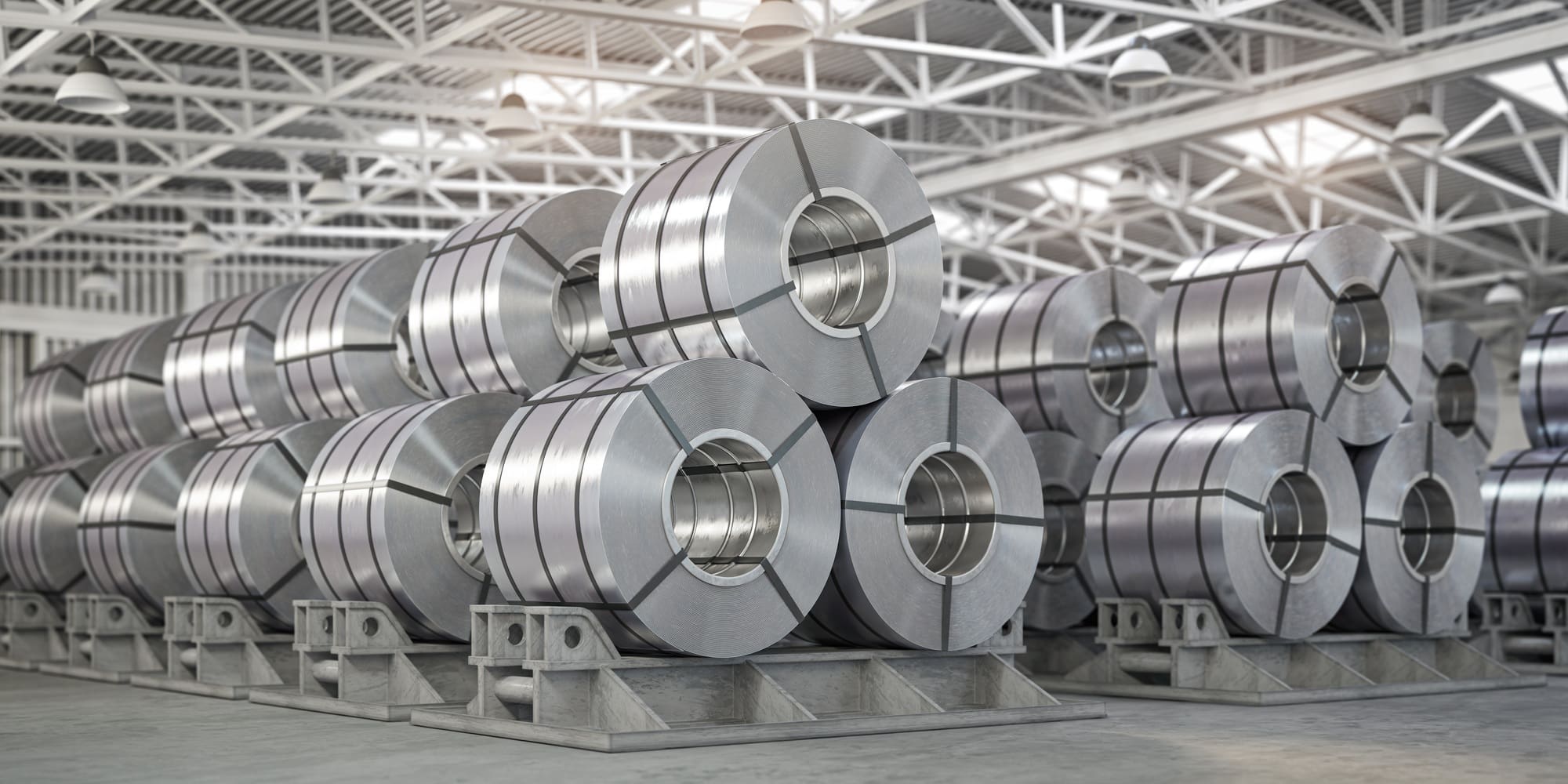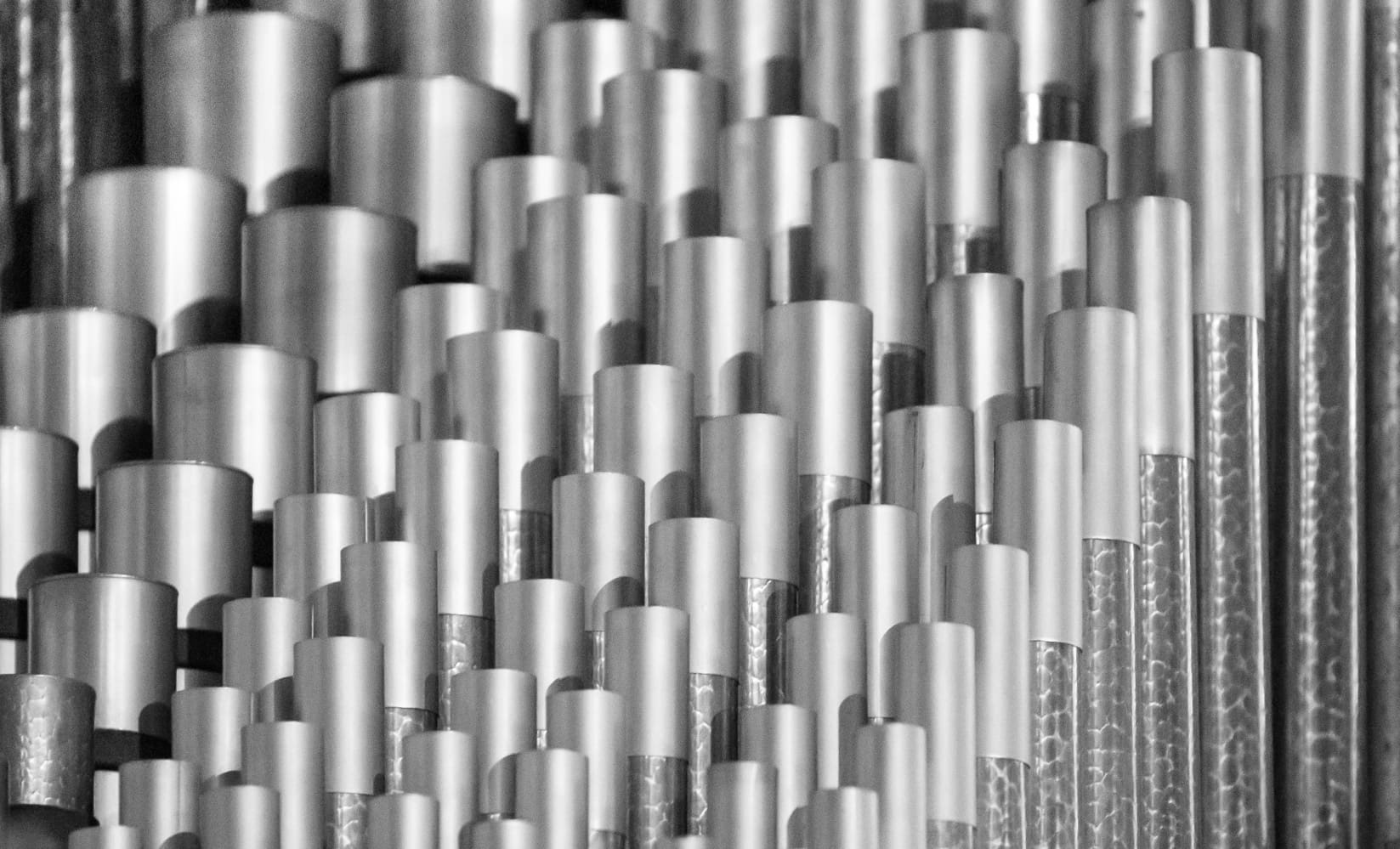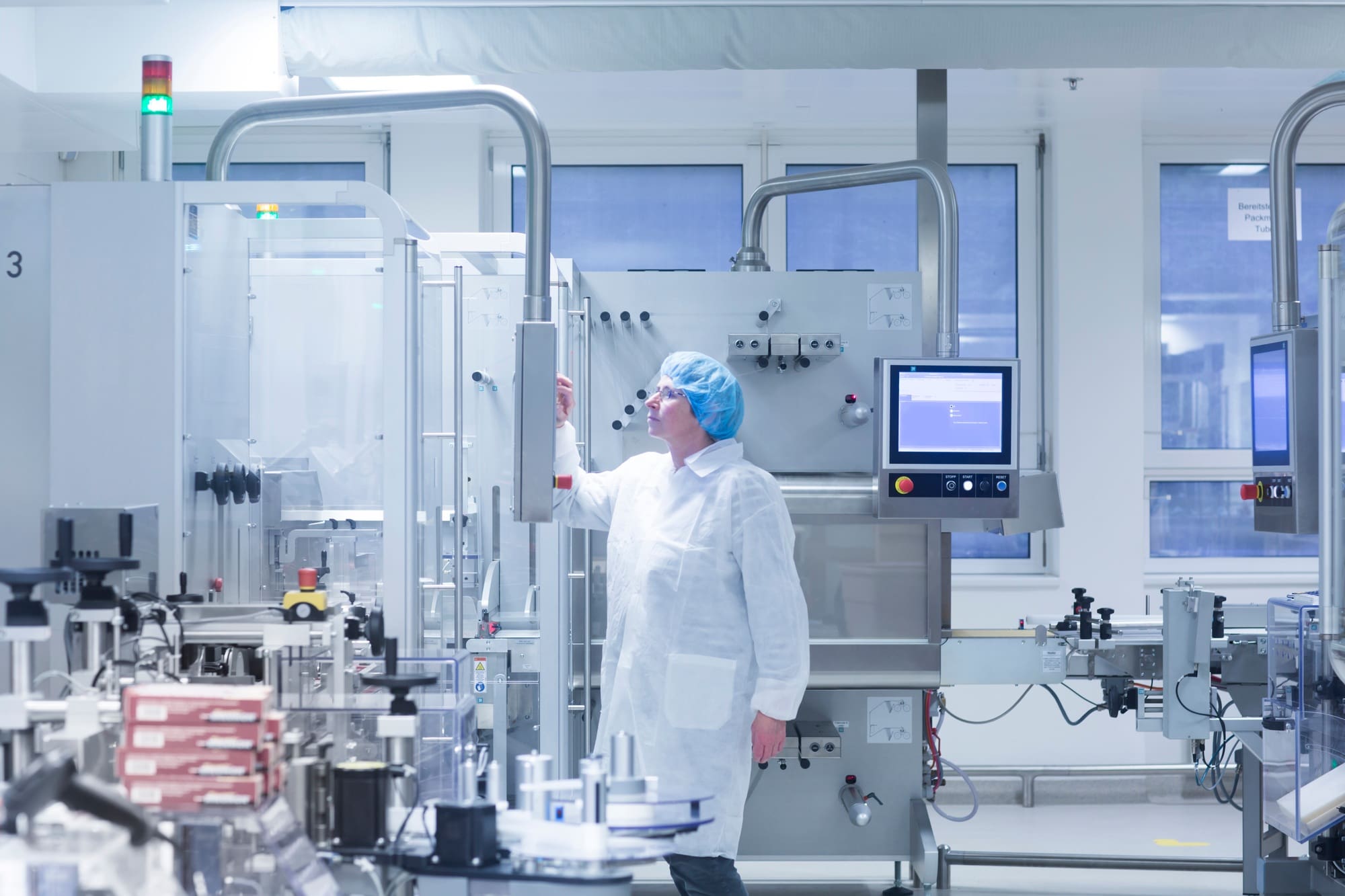Whether for industrial piping, structural frameworks, or hygienic food-grade applications, stainless steel offers unmatched durability and cost efficiency. This article explores the key advantages of stainless steel, providing valuable insights for businesses looking to invest in high-quality, long-lasting materials.
The Strength and Durability of Stainless Steel
High Tensile Strength for Industrial Applications
One of the primary reasons stainless steel is favoured across multiple industries is its exceptional strength. Unlike traditional carbon steel, which can weaken over time due to corrosion, stainless steel contains chromium, which creates a self-healing protective layer. This helps maintain its integrity in harsh environments.
Because of its high tensile strength-to-weight ratio, stainless steel can withstand heavy loads and mechanical stress without warping, cracking, or weakening. This makes it an ideal material for:
- Construction – Used in bridges, skyscrapers, and infrastructure projects, stainless steel ensures structural integrity and long-term performance.
- Industrial Machinery – Stainless steel is a key component in heavy-duty equipment due to its ability to handle continuous mechanical stress.
- Automotive & Transport – Stainless steel is used in train carriages, aircraft components, and vehicle exhaust systems, where strength and heat resistance are crucial.
Its high strength also allows for lighter structures without compromising durability, which is particularly beneficial in high-rise construction and transportation, where reducing weight can improve efficiency and safety.
Corrosion Resistance for Harsh Environments
Unlike mild steel, which requires coatings to prevent rust, stainless steel is naturally corrosion-resistant. The chromium content in stainless steel reacts with oxygen, forming a thin yet strong oxide layer that protects against rust, staining, and chemical exposure.
Industries that benefit from stainless steel’s corrosion resistance include:
- Marine & Offshore – Stainless steel withstands saltwater exposure and harsh weather conditions, making it ideal for ships, docks, and offshore oil rigs.
- Chemical Processing – Many stainless steel grades resist chemical corrosion, ensuring longevity in acidic and high-pressure environments.
- Water Treatment – Stainless steel is widely used in pipes, tanks, and filtration systems, where its resistance to rust ensures a long operational life.
For businesses operating in high-moisture or chemically reactive environments, stainless steel offers a low-maintenance, long-lasting solution that outperforms traditional steel alternatives.
Sustainability and Environmental Benefits
100% Recyclable and Energy Efficient
Stainless steel is a fully recyclable material, making it an environmentally friendly choice for businesses looking to reduce waste and lower their carbon footprint. Unlike some materials that degrade during recycling, stainless steel can be repurposed indefinitely without losing its properties.
Approximately 85% of stainless steel is made from recycled content, and at the end of its life cycle, it can be recycled again rather than ending up in landfills. This contributes to:
- Reduced raw material consumption – Less reliance on virgin ore mining.
- Lower energy usage – Recycling stainless steel consumes far less energy than producing new steel from raw materials.
- Minimal environmental impact – No harmful coatings or chemical treatments required.
For businesses prioritising sustainability, stainless steel aligns with green initiatives while maintaining performance and durability.
Longevity Means Lower Resource Consumption
One of the most cost-effective aspects of stainless steel is its lifespan. While some materials degrade over time, stainless steel resists wear, impact, and extreme temperatures, reducing the need for frequent replacements and repairs.
This long lifespan leads to:
- Lower maintenance costs – No need for protective coatings or frequent refinishing.
- Fewer replacements – Stainless steel structures can last decades, even in harsh environments.
- Reduced downtime – Equipment and structures made from stainless steel require less maintenance and repair, increasing efficiency.
By choosing stainless steel, businesses save money in the long run while ensuring reliable performance in demanding applications.
Applications of Stainless Steel Across Industries
Food & Beverage Processing
Stainless steel is non-porous, meaning it does not absorb bacteria, making it the gold standard for food and beverage production. It is widely used for:
- Processing equipment – Used in brewing, dairy, and food packaging industries.
- Storage tanks and piping – Ensuring contamination-free transport of liquids.
- Commercial kitchens – Worktops, sinks, and appliances for hygiene and durability.
Its resistance to acidic and salty environments makes it ideal for the beverage industry, where exposure to juices, wines, and brines can cause other metals to degrade.
Pharmaceutical & Medical Equipment
Stainless steel plays a critical role in pharmaceutical and healthcare settings, where hygiene and sterility are non-negotiable. It is used in:
- Medical instruments – Scalpels, surgical tools, and hospital equipment.
- Sterile processing units – Tanks, tubing, and filtration systems.
- Cleanroom applications – Laboratory workstations and containment units.
Its non-reactive properties ensure that stainless steel does not interfere with chemical formulations or medications, making it an essential material in healthcare and biotech industries.
Construction & Architecture
Architects and engineers prefer stainless steel for its strength, aesthetic appeal, and low maintenance. It is commonly used in:
- Structural beams and reinforcements – Providing long-lasting support.
- Cladding and facades – Offering modern design and weather resistance.
- Bridges and railings – Delivering safety and durability in public infrastructure.
Stainless steel’s ability to maintain its appearance while withstanding environmental stress makes it an excellent investment for high-profile commercial and public projects.
Why Stainless Steel is the Best Choice for Your Business
Whether you operate in construction, manufacturing, food production, or healthcare, stainless steel provides unmatched advantages that reduce costs, improve efficiency, and enhance sustainability.
By choosing stainless steel, businesses benefit from:
- Long-lasting strength and corrosion resistance
- Lower maintenance and replacement costs
- Eco-friendly and recyclable material
- Superior hygiene for food and pharmaceutical applications
With multiple grades and customisation options, stainless steel can be tailored to meet your specific industry needs, ensuring that your projects and equipment perform at their best for years to come.
Looking for High-Quality Stainless Steel?
At Macro Stainless, we supply premium stainless steel solutions for industries worldwide. Whether you need sheets, plates, pipes, or fittings, our products are designed to deliver strength, durability, and long-term value.
Get in touch today to find the right stainless steel solution for your business.




